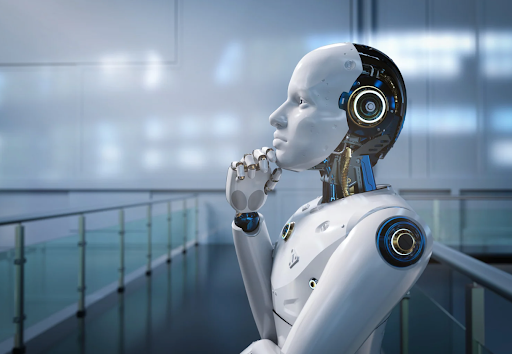To sign up for our daily email newsletter, CLICK HERE
Introduction
AI chatbots have transformed customer service, e-commerce, and communication, and their evolution shows no signs of slowing. The chatbot industry is expected to grow significantly, reaching $9.4 billion by 2024, driven by rapid advancements in AI and machine learning. Chatbots today handle millions of interactions across industries, offering efficiency, personalization, and 24/7 availability. But what does the future hold?
This article explores key trends and challenges shaping the next decade of AI chatbots, including emerging technologies and expert insights into their evolving role in businesses and everyday life.
Emerging Trends

As the AI chatbot advances, several trends will shape the future of this technology:
1. Voice-Activated AI Chatbots
Voice technology is increasingly popular, driven by platforms like Amazon Alexa and Google Assistant. In the future, chatbots will likely shift beyond text-based interactions to more sophisticated voice-activated systems. For example, imagine interacting with customer service chatbots via your car’s voice assistant, seamlessly booking appointments or managing your schedule while driving.
2. Hyper-Personalized Chatbots
Hyper-personalization will be a hallmark of future AI chatbots. Already, companies like Sephora use AI to personalize product recommendations based on browsing history and preferences. The next wave of chatbots will take personalization further by adapting to users’ emotional states and past interactions, offering highly tailored experiences in fields like healthcare, where patient histories will inform more precise recommendations.
3. AI-Driven Decision-Making
The future of chatbots isn’t just about responding to queries but making informed decisions. Financial chatbots, for example, could analyze market trends and suggest investments based on real-time data, becoming valuable assets in personal finance and investment management.
4. Cross-Platform Integration
Imagine starting a conversation with a chatbot on your laptop, continuing it on your phone, and then finishing it on a smart home device—all without losing context. Cross-platform integration will make this possible, creating a seamless, omnichannel customer experience. For example, you can use ChatMax AI from the website to your phone.
Industries AI Chatbots May Impact in the Future
AI chatbots are set to transform a wide range of industries over the next decade. According to a survey by MarketsandMarkets, the AI chatbot market is expected to grow significantly, impacting sectors such as:
- Healthcare: AI chatbots will enhance telemedicine, appointment scheduling, and patient monitoring. For instance, Babylon Health’s chatbot assists with symptom checks and advice, helping doctors manage more patients efficiently.
- Education: Chatbots will act as virtual tutors, offering personalized learning experiences and administrative support. Duolingo, for example, already uses chatbots to help users learn new languages interactively.
- Finance: Banks will increasingly rely on AI-driven chatbots for customer support, fraud detection, and personalized financial advice. Bank of America’s Erica, for instance, helps users manage transactions and offers proactive financial insights.
- Retail and E-Commerce: Chatbots will continue to assist with product recommendations, order management, and customer queries, boosting engagement and sales. H&M’s chatbot offers personalized fashion advice, improving the customer shopping experience.
- Travel and Hospitality: AI chatbots will streamline booking processes, provide travel recommendations, and manage reservations. Expedia’s chatbot, for example, assists users with booking flights, hotels, and responding to queries.
As these sectors continue to adopt AI chatbots, businesses will need to integrate them effectively to maintain a competitive edge while addressing the potential ethical and security challenges associated with AI.
Challenges Ahead

While the future of AI chatbots is bright, several challenges must be addressed:
1. Data Privacy and Security
With increased usage comes the risk of cyberattacks and data breaches. Chatbots are already handling sensitive information such as personal data and payment details, and as their role expands, the need for stringent privacy measures becomes critical. Developers must ensure compliance with regulations like GDPR to protect user data.
2. Ethical Considerations
As AI chatbots become more autonomous, ethical concerns will arise. For instance, when chatbots start making decisions that impact areas like healthcare or finance, transparency and accountability will be essential. Who will be responsible if a chatbot makes an error or exhibits bias?
3. Balancing Automation and Human Touch
While AI chatbots excel in efficiency, they lack the emotional intelligence of human agents. Striking the right balance between automation and human interaction will be key to ensuring customers feel understood and valued, rather than treated as just another query in the system.
Expert Opinions

Experts predict that AI chatbots will become more sophisticated in the coming decade, with some expecting them to rival human agents in specific contexts. Dr. Jane Smith, a leading AI researcher, notes that “AI chatbots will soon become indistinguishable from humans in customer service, providing even more personalized experiences.” However, she also highlights the importance of maintaining ethical standards as these systems evolve.
Professor John Doe adds, “As AI chatbots become more autonomous, ensuring that they remain transparent and accountable will be crucial for their continued success.”
Conclusion
AI chatbots are set to play an even larger role in businesses and daily life over the next decade. With trends like voice-activation, hyper-personalization, and AI-driven decision-making, chatbots will become more capable and versatile. However, challenges around data privacy, ethics, and maintaining the human touch will need to be addressed to ensure that chatbots continue to benefit users and businesses alike.
By understanding these trends and preparing for the challenges ahead, businesses can position themselves at the forefront of this evolving technology.